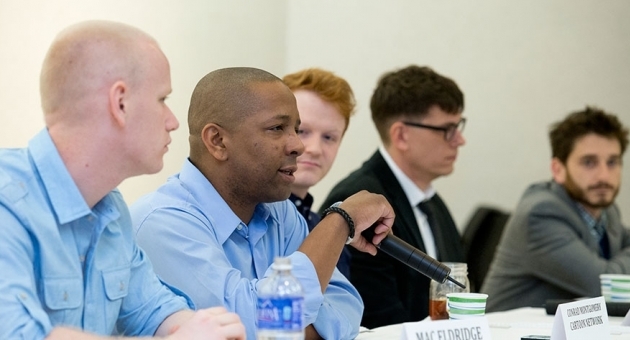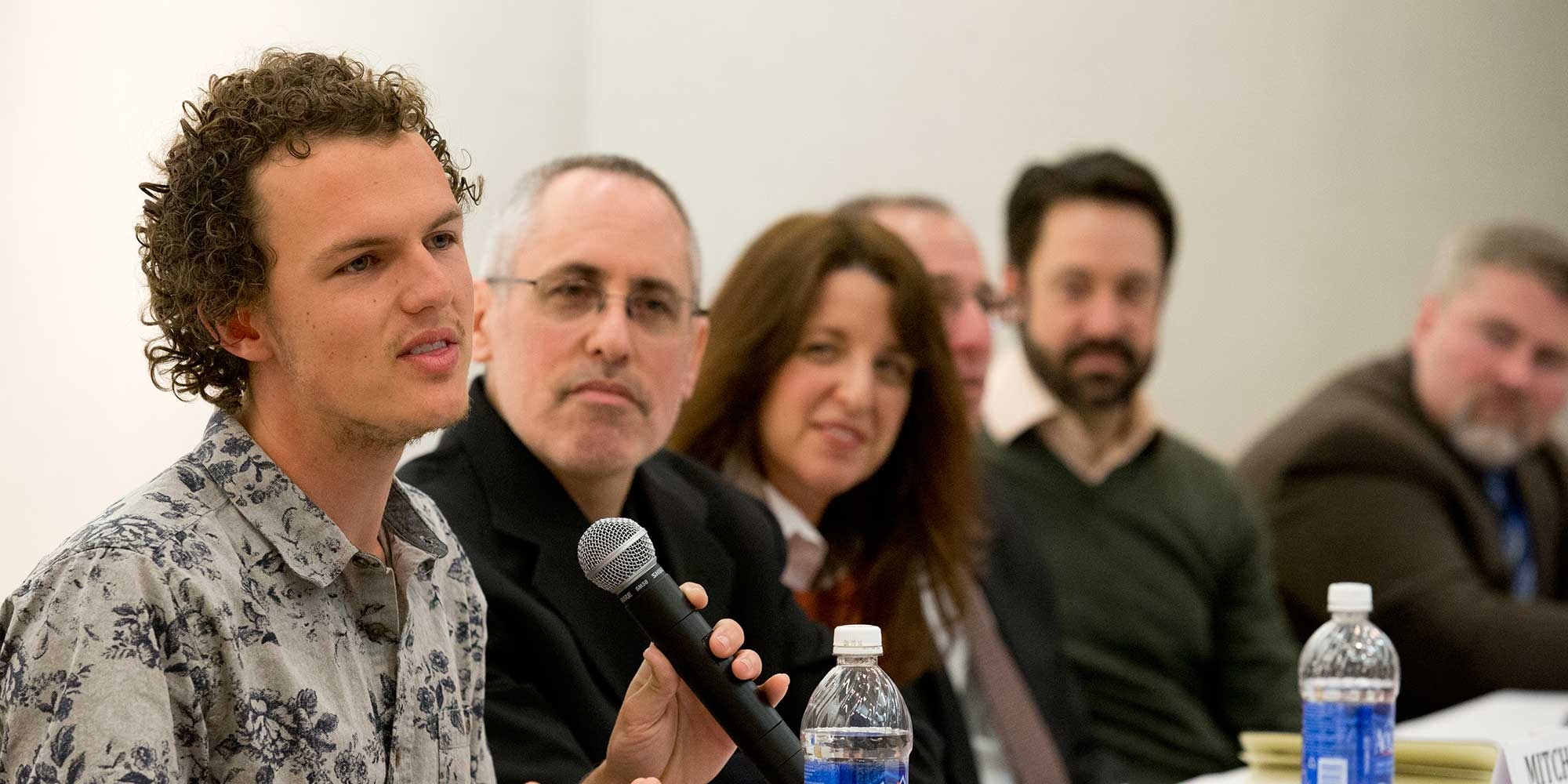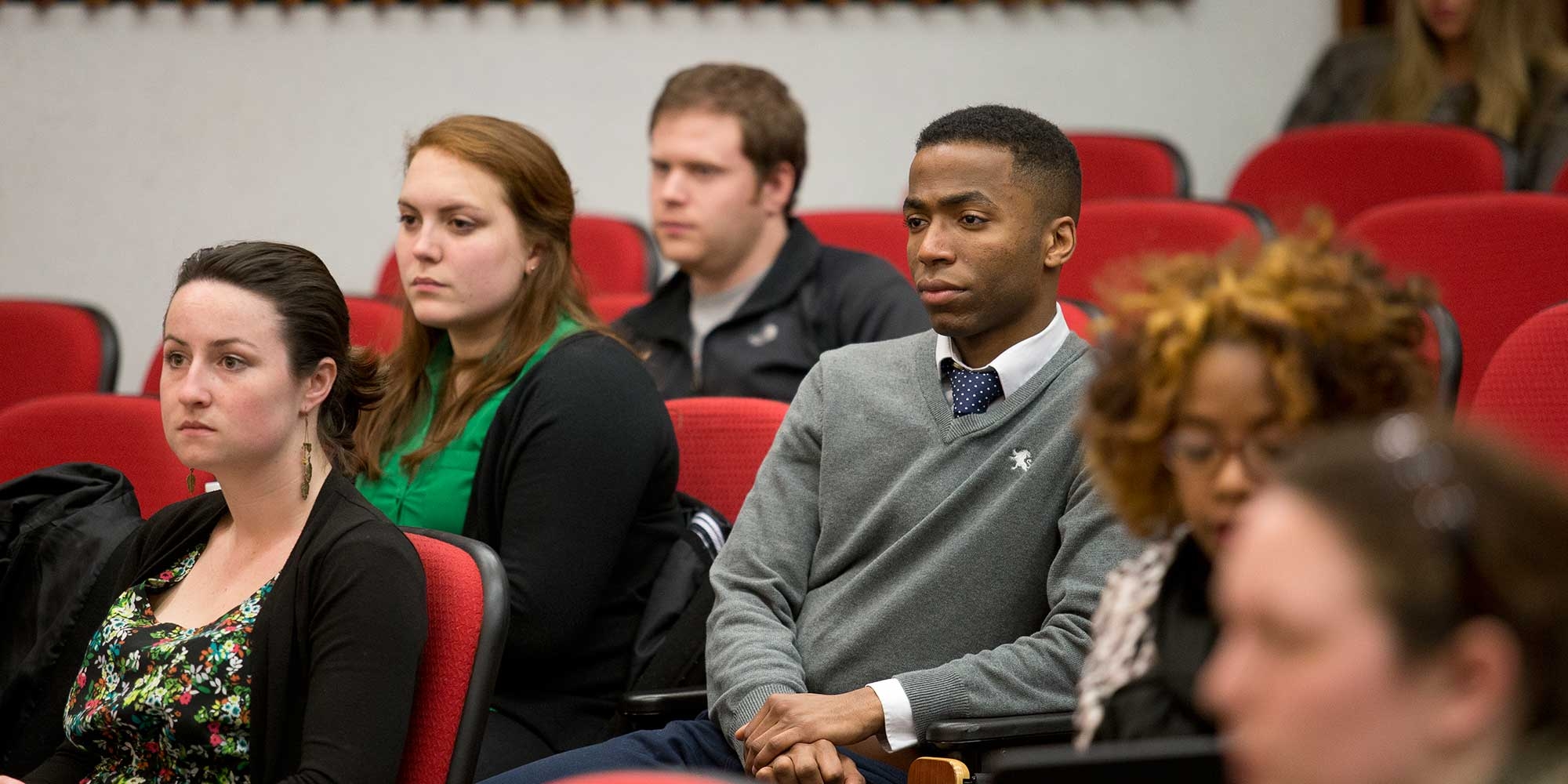Students learn that digital media can be lucrative

Despite the naysayers, it is possible to make a living from jobs in digital media.
That was the message that more than 200 Temple students heard Friday, March 21, from 17 representatives of companies as diverse as the Professional Golfers’ Association (PGA) and Philadelphia’s media Goliath, Comcast.
Guests on the three panels of #EnufAboutU, What About Me?—252 Things to Know About Making a Career (and Making Money) in the Digital World said the basic keys to breaking into the media business have not really changed in comparison to the evolving technology: It still boils down to building relationships and telling good stories.
Organized by Visiting Professor Jim McKairnes, the School of Media and Communication's Verizon chair for global broadband and telecommunications, the event was held Ritter Hall’s Walk Auditorium and brought together academics and researchers to discuss the impact digital-media producers have on society and the best ways for students to enter the field.
Though common smartphone technology equips almost anyone with skills to shoot and edit their own videos, the panelists agreed that the paychecks will not follow until the right people see the content and want to distribute it.
“Have a dialogue with people who can actually help you out,” advised Conrad Montgomery, director of current series at the Cartoon Network, who emphasized building contacts with people who will pay to showcase your work.
That is how Mac Eldridge became an associate producer for PGA Tour Entertainment.
Eldridge posted a video on YouTube that features the golf course where his father is a pro. He netted a rather unimpressive 1,500 views in the days that followed, but soon realized that the size of the audience did not matter as much as who was tuning in.
Eldridge soon got a call from the PGA Tour asking permission to use his video for promotional purposes. Rather than just give it away, Eldridge told them the price was a job. The request paid off.
McKairnes said the work he and his team did to pull together #EnufAboutU was worth it.
“Students have come up to us to say, ‘I’ve never been to a school symposium where I actually learned something about how to approach my career,’” he said. “That kind of feedback is what it’s all about.”

